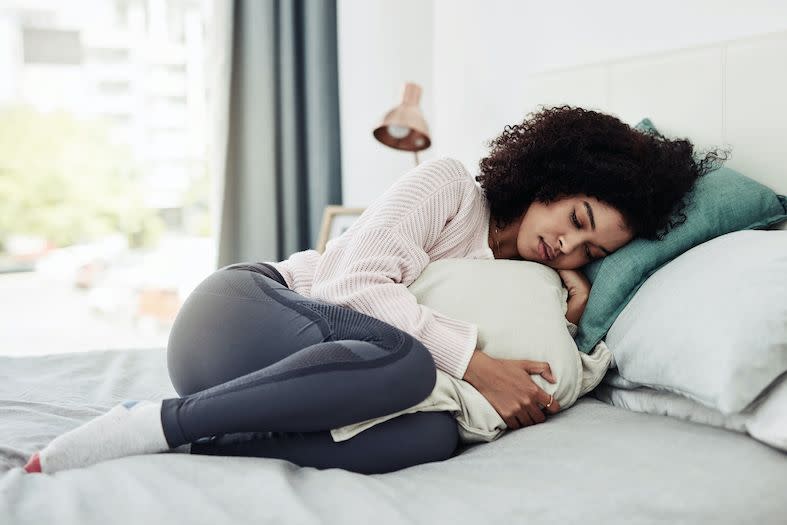Here's why women are more likely to have Long COVID than men

Although the government have said face coverings are no long mandatory (but they certainly are still encouraged!) and the prospect of another lockdown, finally, feels well and truly out of the picture, the impact of COVID-19 is still lingering – especially for those dealing with Long COVID or who are severely unwell after contracting the viral disease.
There are over 200 symptoms associated with Long COVID, including extreme fatigue, a continued 'tight' feeling in the chest, headaches, brain fog and a reduced libido. Now, a new study has revealed that women are more likely to suffer from Long COVID than their male counterparts, further highlighting the gender health gap that's been brought to the forefront of our attention in recent years.
According to the official government findings, prevalence of Long COVID is higher in women – which aligns with other studies that have noted women have a higher rate of chronic diseases than men. However, some argue that this notion is skewed, suggesting that women are more vocal about their illnesses and thus more likely to report to their doctor.
The news comes just weeks after a group of scientists reportedly made headway into discovering why some people are more vulnerable to coronavirus on the whole, giving fresh hope to patients, as unearthing the reasons why could also help lead to better treatments for those suffering in future.
The study, conducted on almost 57,000 participants and led by researchers from the University of Edinburgh and Genomics England, identified 16 specific genes that predispose some to critical illness after contracting the virus, as well as confirming seven other genes linked to severe COVID that had previously been identified via prior research.
As reported by the Financial Times, Dr Kenneth Baillie, a critical care consultant who spearheaded the work, said the findings help to "explain why some people develop life-threatening COVID-19, while others get no symptoms at all... More importantly, this gives us a deep understanding of the process of [the] disease and is a big step forward in finding more effective treatments."
Rather promisingly, Dr Baillie even touted the idea that these new developments could bring the death rate "down to zero".

In order to identify the differences in genes and how they respond to COVID-19, scientists looked at genome samples from 7,491 people unwell with COVID-19 in ICU in the UK, along with 1,630 people who said they only experienced "mild" symptoms after testing positive.
Scientists then contrasted both of these sample groups with an additional 48,400 participants who have never contracted the disease.
As for hopes for better treatments, medication that is already prescribed to help those suffering from chronic obstructive pulmonary disease or asthma could possibly be selected for clinical trials, researchers have suggested, as it already targets a selection of those 16 genes shown to put a person more at risk of serious illness from COVID-19.
A separate recent trial also found that Baricitinib, an arthritis drug, saw a 13% reduction in the mortality rate associated with the virus by 13%.
You Might Also Like

